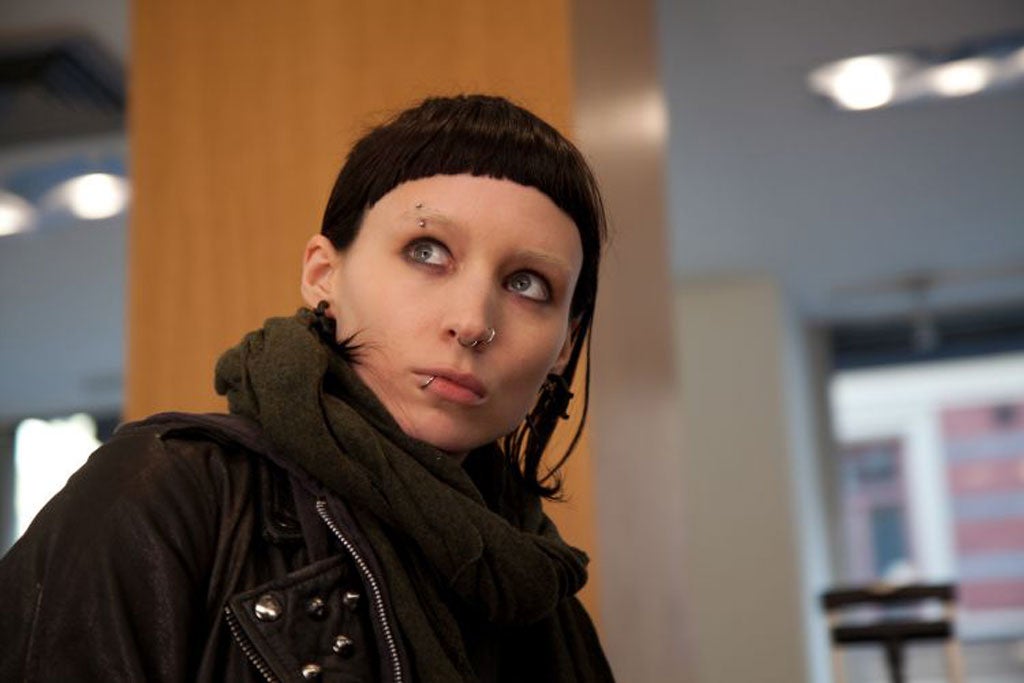
Your support helps us to tell the story
From reproductive rights to climate change to Big Tech, The Independent is on the ground when the story is developing. Whether it's investigating the financials of Elon Musk's pro-Trump PAC or producing our latest documentary, 'The A Word', which shines a light on the American women fighting for reproductive rights, we know how important it is to parse out the facts from the messaging.
At such a critical moment in US history, we need reporters on the ground. Your donation allows us to keep sending journalists to speak to both sides of the story.
The Independent is trusted by Americans across the entire political spectrum. And unlike many other quality news outlets, we choose not to lock Americans out of our reporting and analysis with paywalls. We believe quality journalism should be available to everyone, paid for by those who can afford it.
Your support makes all the difference.It's a mystery as provocative as anything in The Millennium Trilogy: is there a fourth book by the author of The Girl with the Dragon Tattoo? How much more did Stieg Larsson write about the fascinating, sociopathic Lisbeth Salander before his prodigally unhealthy lifestyle ended his life at the age of 50?
The answer to that is swirling around in the acrimonious dispute between Larsson's ex-partner and his blood relatives – but succour is at hand for those suffering serious Larsson withdrawal symptoms: The Expo Files, edited by his journalistic colleague Daniel Poohl.
Stieg Larsson was comfortably among the most commercially successful writers of the first decade of the 21st century, albeit posthumously. In the course of the sprawling, politically charged, violent epic that is The Millennium Trilogy, Larsson invites us to gaze at the sexually polymorphous, much-abused heroine Lisbeth Salander. In fact, the non-consensual sex in the novel quickly became one of its most controversial elements – defended as possessing a keen feminist tenor but excoriated by those who felt that the repeated rapes were gloating and exploitative, granted a cynical feminist gloss in order to make them acceptable (and politically correct) to modern readers.
Such issues are touched on in The Expo Files. Courtesy of the writer's British publisher, we are given several fascinating insights into Larsson's non-fiction writings; they may not settle such arguments, but give the reader his authentic voice as a journalist (and even his skills in this area have been disputed in very public fashion since his death).
Before creating his fictional surrogate Mikhail Blomkvist, Larsson was already celebrated as a campaigning journalist, taking on anti-Semitism and corruption in government. He added battles for the rights of battered women to his already weighty political résumé, but was most celebrated as an authority on extremist organisations; his sorties against them often put him in physical danger. His name was known in this country from the pages of Searchlight magazine, but his own magazine was the Swedish journal Expo, from which the passionately written articles collected here are drawn.
Larsson's views are still controversial (the journalist Nick Cohen, for instance, criticises his almost obsessive concentration on male violence against women and also accuses him of paranoia). Larsson founded the Swedish Expo Foundation with a brief to "counteract the growth of the extreme right", and edited the house magazine Expo (the inspiration for the magazine "Millennium", which the journalist Blomkvist works on in the trilogy), penning the series of lacerating articles represented in The Expo Files. There are keen insights here into the issues that motivated him, including a chillingly prescient piece about the likelihood of terror killings in the Scandinavian countries – along with a cutting exposé of the "charlatans" of neo-spiritualism; in none of these does Larsson mince his words.
This collection – often infuriating, but always challenging – may be bought by most as an adjunct to Larsson's fictional universe, but these articles (some almost 30 years old) still have much to say to us today.
Barry Forshaw's 'Death in a Cold Climate: A Guide to Scandinavian Crime Fiction' is published by Palgrave Macmillan
Join our commenting forum
Join thought-provoking conversations, follow other Independent readers and see their replies
Comments